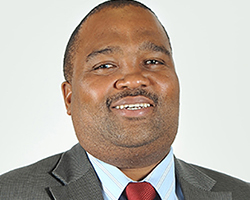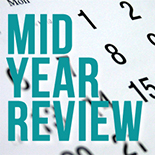

Greetings to everyone
I am once again pleased to update you on Council's work during this unusual and unpredictable time.
The few issues that our ordinary meeting of Thursday, 10 September, dealt with are outlined below.
 |
| ||||||||||
The following assumptions are the basis for the revisions made on the second semester calendar:
|
|||||||||||
|
The university management presented an update regarding the university's performance in terms of the Annual Performance Plan. Council commended management on the progress made in spite of the current challenging circumstances. |  |
 |
In terms of the prescripts of the external audit tender process and subsequent appointment of PwC in 2018, the Audit, Risk and Compliance Committee is required to consider the annual reappointment of the external auditor, for recommendation and approval by Council. Council ratified the approval of the re-appointment of PWC for a subsequent year as external auditors of the NWU as approved by the ExCo of Council on 6 August 2020. |
|
Sections 20 and 23 of the EE Act 55 of 1998 requires designated employers to prepare and implement a successive EE plan which is expected to achieve reasonable progress towards employment equity in the employer's workforce. The current EE plan expires on 31 December 2020. Therefore, there is a need for a successive EE plan for 2021-2023. In terms of the EE Act, the NWU as a designated employer is required, in consultation with workforce representatives to; |
 |
The new plan will focus on the following four main strategies:
|
|
 |
Management presented to Council an update on the financial impact of Covid-19 on the university's finances. The current climate is most likely to result in some financial losses. Therefore, different scenarios based on assumptions have been compiled in order to determine the possible negative financial impact. Council noted that various mitigation plans have been put in place to ensure financial sustainability. Council congratulated management regarding the approach it has adopted. We will, without doubt, continue to monitor the developments in this regard. |
|
Council took note of the status report regarding progress made by the university at various levels of operation in countering the imminent threats posed by Covid-19. Council will continue to monitor the situation. |
 |
 |
On an annual basis, Council conducts a self-review of its role as a governance structure of the university. Following the Department of Higher Education and Training's (DHET) scorecard which indicated some shortcomings that Council discussed at its meeting of 26 September 2019, Council resolved in March 2020 to conduct an external review. |
| A panel consisting of four (4) persons with sound knowledge and experience on governance matters in the South African higher education sector conducted the review. The review process involved a range of methods including interviews and workshops with members of Council. During our meeting on 10 September, the panel presented preliminary feedback which covered the following:
|
|
Like many organisations and structures around the world, our university is doing its best to continue to function efficiently and effectively to deliver on its mandate. As Council, we will continue to monitor the university's operations closely and work with management to find solutions.
We are satisfied and encouraged with the work being done at the moment to anticipate and respond to the challenges. Let me take this opportunity to express my gratitude to Council for the trust it has placed in me by re-appointing me to contribute as external specific expert for a further three-year term. It is indeed an honour and privilege to serve the NWU community together with a group of capable, dedicated and selfless persons with a shared objective of making our university one of the best in South Africa and globally. I wish to thank all our stakeholders for the constructive role they continue to play in ensuring the stability and sustainability of our university.
Once again I wish Prof Kgwadi, principal and vice-chancellor, as well as all members of the NWU community who are receiving treatment for Covid-19 and other diseases, a speedy recovery.
Kind regards
Dr MB Tyobeka
Chairperson: NWU Council
| For more information please contact Amanda van der Merwe. |